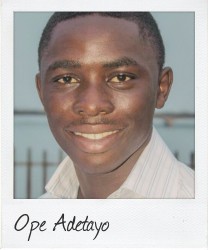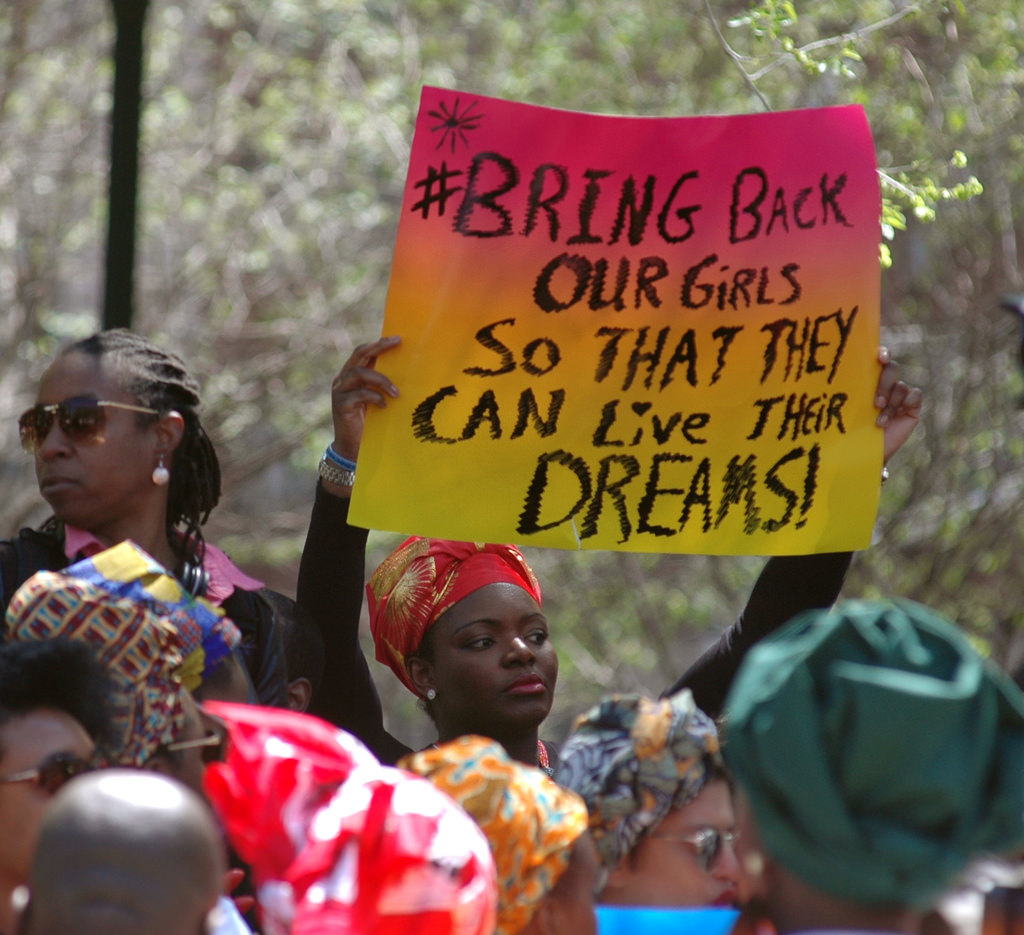“Like Chibok, another deadly tragedy to come”
March 14 Another attack on school children raises questions about commitment to security, writes Ope Adetayo, 19, a Commonwealth Correspondent from Lagos, Nigeria, who argues both government and the public need to reassess their attitudes.
Another attack on school children raises questions about commitment to security, writes Ope Adetayo, 19, a Commonwealth Correspondent from Lagos, Nigeria, who argues both government and the public need to reassess their attitudes.
The Nigerian consciousness has once again been deeply disturbed by the replay of a piece of history that is yet to be completely remedied. The repeat of that history is an indictment on the competence and responsibilities that have been exhibited by the Nigerian leadership.
The whole of humanity was horrified when over 200 girls were carted away from their school, where they intended to obtain the intellectual and academic necessities. The hope was that education would facilitate their escape from the cycle of existential darkness imposed by the Boko Haram sect, which has terrifyingly and assiduously worked to control the world of a people who are also victims of the particular political climate of the country. The whole world fought for their return but it did not materialize. The whole world waited – albeit in vain – for a miracle that would have proved the abduction a mere lapse of security.
Despite the outrage that accompanied the abduction, a few things stood out in the testimonial of the past government under whose watch it happened. First and foremost, it chose willfully to engage in a game of disbelief despite the overwhelming evidence of the spectacle. This delay of acknowledgement of the tragedy made it impossible to return the girls to freedom. The incumbent leadership condemned the past government for its behaviour, and the electorate gave them the blessing to take possession of power, hoping for a steady improvement in all facets of the country’s national existence.
It is needless to demonstrate that nothing particularly has changed since then, but it is equally outrageous that past government’s undoing has now become a salient record for the current leadership charged with the duty of preempting such spectacle! It happened in Chibok, it has happened in Dapchi again with virtually the same nature of events – denial, failure to grasp reality and acknowledge the event, the inertia to act accordingly, and apparent disregard for the sanctity of human lives.
It is hard to swallow the bitter fact that the country is becoming increasingly porous to unimaginably dangerous elements and that schools are no longer safe. This is a serious indictment of the new low we have attained as a country in our collective responsibility. It might sound alarming and at the same time insensitive to foresee another tragedy similar to the other two, but what is to be expected in failing security, where we live in dangerous safety? What is expected in a country that fails to take into cognisance the tragedies that beleaguer the common citizens, who suffer from all forms of deprivations ranging from economic, academic, existential, or health? One will be mortified to think of these as possible in a country with its sheer abundance of natural resources, workforce, continental prominence and diversity of talents among other national insurances against poverty and retrogression.
A serious commitment has to be placed on the security of the common people, because people who are increasingly vulnerable to a vicious cycle of insecurity – coupled with transparent poverty – are very much liable to break down psychologically. By being broken, they are likely to constitute a threat to security themselves. You can’t push people to the wall and expect them not to turn their backs. That is what is veiled as revolution, which in fact is a reaction to what society affords them.
Boko Haram might have been technically defeated according to the government, though it is inconceivable how a technically defeated sect can still orchestrate the same action that brought them to their peak during their reign. This is a call for the government to be seriously awake to its security duties and responsibility. We cannot deny the remaining destructive potency of this sect and the proportion in which they can strike.
The Nigerian government had better take a departure from its position and place precedence on the security of the people. It is incumbent on the government to protect its people. Nigerians must also reject the systematic tactics of amnesia that are employed to downplay issues of national importance and stay equally awake to their responsibilities as citizens, and as first and direct victims of insecurity.
Reach me on Twitter @Opeadetayo1
Photo credit: Michael Fleshman BBOG3MAYNYC_DSC_0291 via photopin (license)
…………………………………………………………………………………………………………………
About me: I am Ope Adetayo, an undergraduate of English at the University of Ilorin and a recipient of ‘Gold’ certificate at the 2017 Royal Commonwealth Society Awards for the Commonwealth Essay Competition. I enjoy indelible interest in journalism and literary writing, and am the author of Age and Blood, a play. I am passionate about politics and literature, and they are mediums where I propagate my ideas for a better society.
…………………………………………………………………………………………………………………
Opinions expressed in this article are those of the author and do not necessarily represent the views of the Commonwealth Youth Programme. Articles are published in a spirit of dialogue, respect and understanding. If you disagree, why not submit a response?
To learn more about becoming a Commonwealth Correspondent please visit: http://www.yourcommonwealth.org/submit-articles/
…………………………………………………………………………………………………………………




